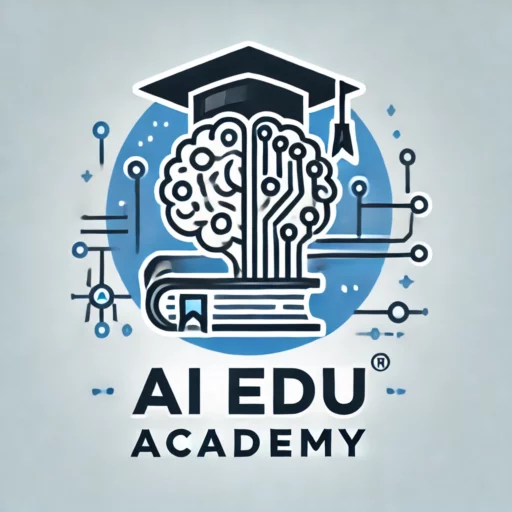Choosing an artificial intelligence course can feel like searching for a needle in a digital haystack. With so many options, how do you separate the fluff from the real deal? Whether you’re a complete beginner or leveling up your skills, spotting the right course can change the game for your AI journey.
Let’s break down the 9 signs of a high-quality artificial intelligence course—so you don’t waste time or money and actually walk away smarter (and maybe even job-ready).
1. Clear Learning Objectives
Why Objectives Matter
Ever joined a course and felt lost halfway through? That’s often because there were no clear goals from the start.
A top-tier AI course should spell out exactly what you’ll learn—like “Understand neural networks” or “Deploy a machine learning model.” These objectives help you track progress and ensure you’re learning practical, relevant stuff.
Want to see a solid example? Check out how objectives are laid out in many courses listed on AI Learning Basics.
2. Curriculum That Matches Industry Standards
Alignment With AI Trends
Tech changes faster than your favorite app gets updates. If the course still teaches outdated tools or ignores deep learning and NLP, it’s a red flag.
A strong AI course should cover:
- Machine learning
- Deep learning
- Natural Language Processing (NLP)
- Computer vision
- Generative AI (yup, like ChatGPT)
To keep up with the latest, explore AI in Education Trends—a great guide to what’s hot (and what’s not) in AI.
3. Hands-On Projects and Real-World Applications
Project-Based Learning in AI
Reading about AI is one thing. Actually building a model? That’s where the magic happens.
High-quality courses make you get your hands dirty: build chatbots, train image recognition models, or analyze data with TensorFlow or PyTorch.
Look for case studies, capstone projects, and portfolio pieces that mimic real-world problems. AI Tools & Software resources can give you insight into which tools you should get comfortable with.
4. Experienced Instructors With Industry Background
Learning From the Experts
Let’s be honest—you wouldn’t want to learn driving from someone who’s never hit the road.
The best AI instructors are those who’ve worked in the field—people who’ve faced real challenges, deployed real models, and solved actual problems.
You’ll often find these top-tier instructors featured in premium platforms like those listed on AI Courses & Certifications.

5. Access to AI Tools and Software
Using the Tools Pros Use
You wouldn’t take a cooking class without a kitchen, right? Same logic.
A quality AI course should give you access to tools like:
- Jupyter Notebooks
- TensorFlow
- Keras
- OpenAI API
- Google Colab
Learning how to use these is essential if you want to keep up with modern AI workflows. Dive deeper at AI Tools & Software.
6. Accreditation or Certification
Does Accreditation Really Matter?
Short answer: sometimes.
If you’re looking to boost your resume or switch careers, certification from a recognized institution can be a game-changer.
Courses offered by universities, tech companies, or listed under AI Certifications are usually more trusted by employers.
However, don’t let fancy logos fool you—some of the best courses come from independent platforms with no formal accreditation but loads of value.
7. Positive Student Reviews and Success Stories
Testimonials That Matter
Real talk: reviews don’t lie. Before hitting that “enroll” button, scroll through what past students say.
Did they land a job? Were the projects actually useful? Was support available when they needed it?
A high-quality course will showcase alumni success stories, not just fancy marketing. Check platforms like Career in AI where student journeys are often highlighted.
8. Career Support and Guidance
Making the Leap Into an AI Career
Even the smartest AI model needs some training. Same goes for students.
Top-tier courses offer:
- Resume help
- LinkedIn profile reviews
- Mock interviews
- Job placement support
Looking for career help in the AI field? Visit Artificial Intelligence Career for resources that go beyond just learning.
9. Continuous Updates and Future-Proof Content
AI is Evolving—Courses Should Too
AI today won’t be the same AI tomorrow. With updates rolling out like software patches, your course should adapt just as fast.
A high-quality AI course keeps up by regularly adding new content, covering trends like generative AI, prompt engineering, or AI ethics.
For evolving topics, follow AI Development and AI in EdTech to stay future-ready.
Final Thoughts
Picking an AI course shouldn’t feel like throwing darts in the dark. The best ones are clear, hands-on, practical, and keep up with the real world.
If you’re serious about building a future in artificial intelligence, bookmark AI Edu Academy and explore trusted resources like AI Basics, Online AI Courses, and AI Skills. Your AI journey deserves the best start.
FAQs
1. How do I know if an AI course is beginner-friendly?
Look for terms like “AI for beginners” or “no experience required.” Bonus if it’s listed under AI for Beginners.
2. Are free AI courses good quality?
Some are great! But make sure they have hands-on projects and updated content. Paid doesn’t always mean better—just be picky.
3. Should I choose an online or in-person AI course?
Online gives flexibility; in-person gives structure. Choose what fits your lifestyle and learning style.
4. How long does it take to finish an AI course?
Anywhere from 4 weeks to 12 months. It depends on course depth, your pace, and whether you’re doing it part-time or full-time.
5. What kind of jobs can an AI course prepare me for?
You could become a data scientist, machine learning engineer, AI researcher, or even an AI product manager. Check out Career in AI for ideas.
6. Is it necessary to know math before learning AI?
Not essential for beginner courses, but basics like linear algebra and probability help as you go deeper.
7. Can I learn AI without a computer science background?
Absolutely. Many courses are built for non-techies. Just be ready to learn a little code along the way.

